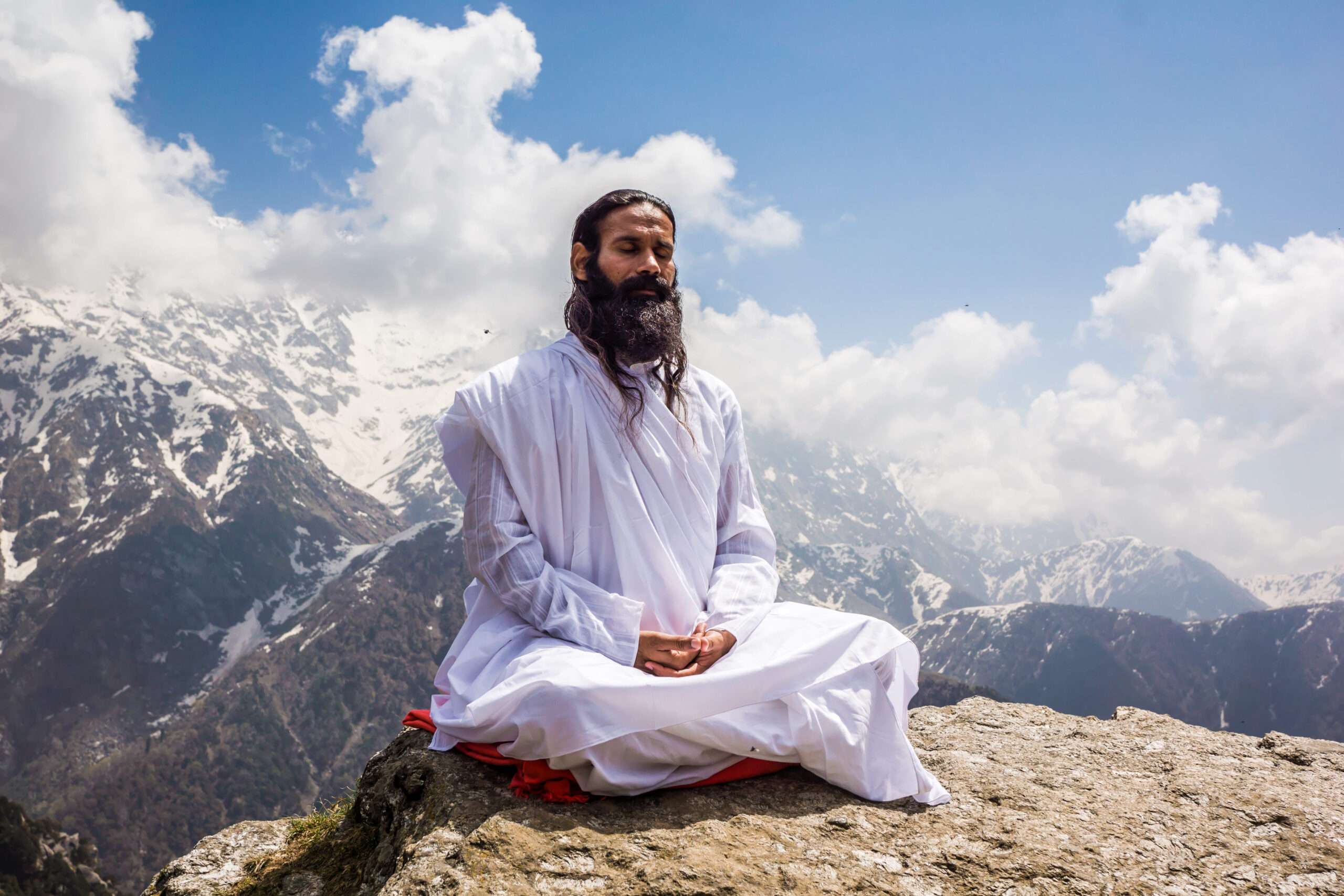Mindfulness Meditation: Unlocking the Power
Mindfulness Meditation
Mindfulness meditation is an ancient practice that has been used for centuries to help people cultivate inner peace, reduce stress, and increase mental clarity. It is a form of meditation that involves paying attention to the present moment and becoming aware of our thoughts and feelings without judgment. Through mindful meditation, we can learn to recognize our thoughts and feelings, observe them without judgment, and use them as a tool for self-growth and healing. Mindfulness meditation can be practiced with or without an instructor. However, in order to get the most out of it, it is best to go through a qualified instructor who can help you learn how to apply mindfulness in different situations and with different people.
From Stressed to Blessed: A Guide to Managing Stress in the Modern World
Stress
Stress is an inevitable part of life, but it can have a negative effect on our physical and mental health. Fortunately, mindfulness meditation can be a powerful tool to help us manage and reduce stress. Through mindful meditation, we can learn to recognize our thoughts and feelings, become aware of our bodily sensations, and observe them without judgment. This allows us to gain insight into our stressors and recognize patterns of behavior that may be contributing to our stress. Additionally, relaxation techniques such as deep breathing, progressive muscle relaxation, and visualization can help us to reduce stress and tension. By incorporating meditation and relaxation techniques into our daily lives, we can help to reduce our stress levels and improve our overall well-being. You may have never given much thought to what stress was until you experienced its physical symptoms or had a friend or loved one share with you their struggle. Stress is often referred to as the “fight-or-flight” response, which is your body’s natural response to any perceived danger. This physiological reaction may cause you to feel irritable, tense, and anxious. For example, if you are waiting for an important meeting that will determine your career path and the outcomes of your career success, the nervousness associated with this “fight-or-flight” response can lead to feelings of anxiety.
Concentration and Spiritual Growth
In addition to reducing stress, mindfulness meditation can also help to improve concentration and foster spiritual growth. Concentration is a key component of meditation and can help to sharpen our focus and clarity of mind. By practicing concentration exercises such as focusing on our breath, repeating a mantra, and counting objects, we can learn to stay focused in the present moment. Furthermore, through mindful meditation, we can explore our inner selves and connect with our spiritual side, allowing us to achieve a greater sense of peace and understanding. Although mindfulness meditation can reduce stress and improve concentration, there is a small chance of experiencing dissociation or depersonalization. Dissociation is when individuals feel as if they are not their bodies, while depersonalization is the feeling that one’s self feels detached from reality. Although this can occur during mindfulness meditation, such experiences are extremely rare. Meditation techniques vary depending on the person.
Tips for Back Pain: Your Guide to Causes, Prevention, and Relief
There are many different techniques available to help achieve a calm state of mind and promote spiritual development by providing tools for reflection and relaxation. Some examples of simple mindfulness meditation practices include focusing on breathing, repeating a word or phrase, focusing on an image, or counting your breaths. A mindfulness meditation practice is when a person focuses on their breathing in order to become more aware of the present moment. This is done by breathing deeply into their abdomen and letting out each breath slowly in a controlled manner. To breathe into your abdomen means that you should breathe deeply and slowly through your nose and then the diaphragm, causing the stomach area to rise up during inhalation and fall down during exhalation. This helps to fill up the lungs with oxygen before it can be exhaled out of your body through your mouth. To calm down, you should lie on your back and close your eyes. Take a few deep breaths and focus on the rising and falling of your abdomen. Focus on how each breath creates a gentle rise and fall within your abdomen. Meditation is a practice in which one trains the mind or attains insight into the true nature of reality, using reason and concentration. By incorporating mindful breathing into our meditation practice, we can improve our breathing patterns and use it as a tool for relaxation and stress relief. You may like this…The Power of Mindfulness: Staying Present in a Busy World.
At its core, mindfulness meditation is about connecting with ourselves on a deeper level and learning to recognize our thoughts and feelings without judgment. It is an incredibly powerful practice that can help to reduce stress, improve concentration, foster spiritual growth, and heal. By incorporating meditation and relaxation techniques into our daily lives, we can unlock the power of mindfulness meditation and improve our “meditation” refers to any form of contemplation or consciousness-related practice used for personal improvement including Buddhist, Hindu, Taoist, Sufi, Quaker prayer (more generally), secular meditation (including Transcendental Meditation), Mindfulness Meditation, and other spiritual practices.
Healing and Mindful Breathing
Healing and mindful breathing are important aspects of mindfulness meditation. We can increase our awareness of our physical sensations, recognize any areas of discomfort and address them accordingly. Additionally, mindful breathing can help reduce stress and tension, as well as overall well-being. For a long time, I’ve struggled with anxiety and panic attacks. They became so bad that, for the first few years of my life as an adult, I was hospitalized for them. For most of these past few years, I’ve been doing just fine on my own and on medication. But in the past year or so, it seems like things have gotten worse again. The panic attacks are back with a vengeance and meditation is not helping much anymore. What can I do? A lot of people may feel that they are either too busy or don’t have enough time to meditate, but research has shown that even just five minutes of meditation can make a huge difference. It depends on the general state of your health and how committed you are to changing your lifestyle for the better. Meditation is a great place to start if you haven’t been able to meditate regularly because it doesn’t take any time out of your day. If you’re not able to meditate in the mornings like I used to do when I was feeling good, try doing so at night before bed instead. Also, reading inspiring books such as books by Cheryl Strayed or Elizabeth Gilbert can be very helpful. Consult your physician before beginning any mindfulness meditation program.
Embracing Spiritual Wellness: A Lighthearted Journey to Inner Peace
FAQ
Q: What is mindfulness meditation?
A: Mindfulness meditation is a mental exercise that focuses on awareness of the present moment. It involves observing thoughts, feelings, and bodily sensations without judgment, allowing you to develop a deeper understanding of your inner self and a more balanced approach to life.
Q: How can mindfulness meditation benefit me?
A: Practicing mindfulness meditation can offer a variety of benefits, such as reducing stress, improving concentration, enhancing emotional resilience, and promoting overall well-being. It can also help you develop a greater sense of self-awareness, allowing for more effective decision making and healthier relationships.
Q: Do I need prior experience to practice mindfulness meditation?
A: No, mindfulness meditation is suitable for people of all experience levels. Beginners can start with simple techniques, such as focusing on the breath, and gradually incorporate more advanced practices as they grow more comfortable with the process.
Q: How long and how often should I practice mindfulness meditation?
A: While there’s no one-size-fits-all answer, it’s generally recommended to start with shorter sessions of 5-10 minutes daily and gradually increase the duration as you become more comfortable. Consistency is key, so aim to establish a regular practice that fits your schedule and personal preferences.
Q: Can I combine mindfulness meditation with other practices or therapies?
A: Absolutely! Mindfulness meditation can complement other self care practices, such as yoga, journaling, or exercise, as well as traditional therapy or medical treatments. Integrating mindfulness into various aspects of your life can help enhance its benefits and promote overall well being.









